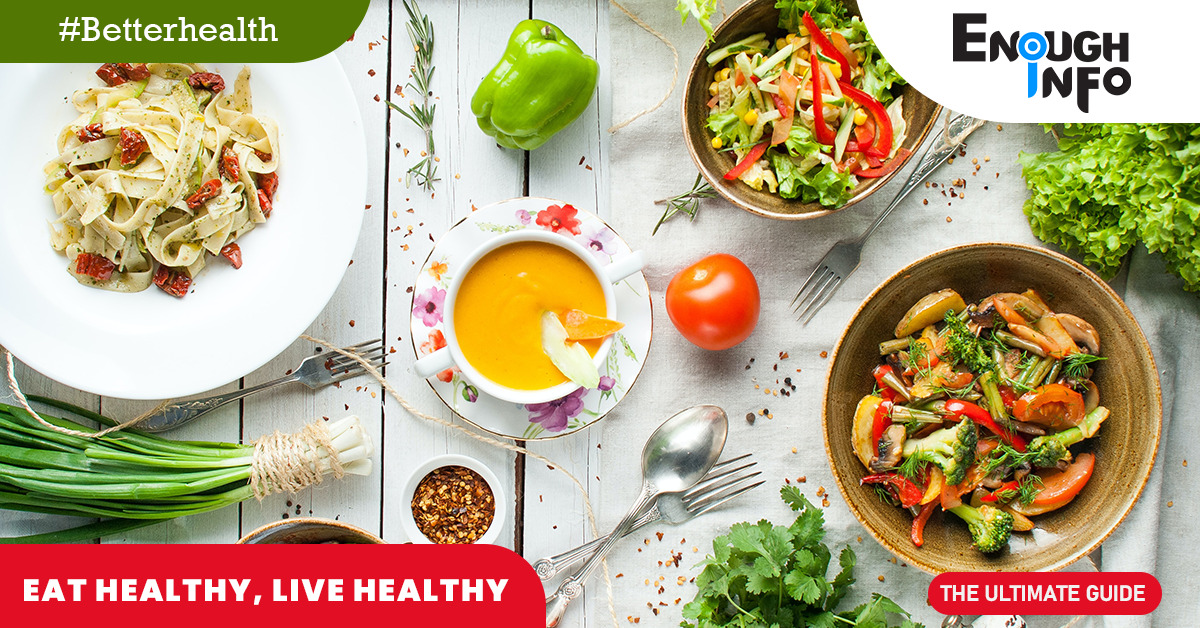The Pros and Cons of Popular Diets (2023 Review)
The Pros and Cons of Popular Diets: Do you need to get in shape? If so, there are a lot of diet plans available that are ready to assist you in achieving your objective.
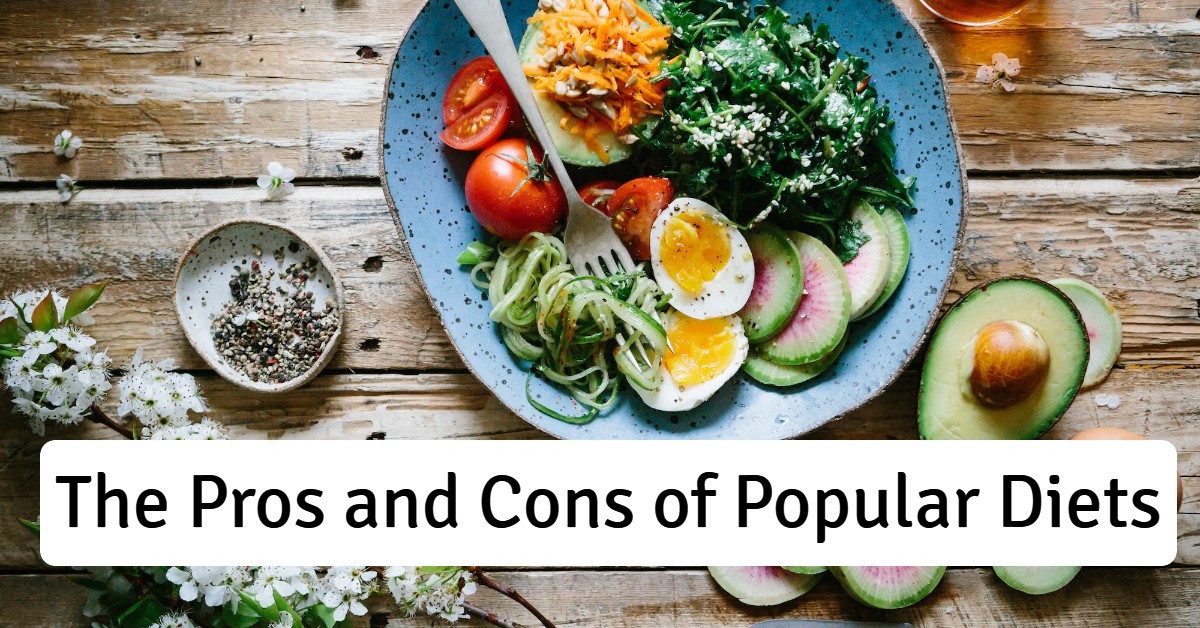
Each strategy appears to have a unique perspective. On one diet, you might be required to totally cut out a certain food group, whereas, on another, you might be told to make food choices based on their health benefits. Many of these plans will help you lose weight, but the real test is whether the diet you select will help you keep the weight off in the long run.
The Pros and Cons of Popular Diets: FAQs & Answers
Why should I adjust my diet?
Adjusting your diet can have numerous health benefits, such as weight loss, increased energy, improved mood, better digestion, and a reduced risk of chronic diseases.
How do I know what adjustments to make to my diet?
It’s best to consult a healthcare professional or a registered dietitian to help you determine what adjustments to make to your diet based on your health goals, preferences, and lifestyle.
How long does it take to see results from dietary adjustments?
The time it takes to see results from dietary adjustments varies from person to person and depends on factors such as the types of adjustments made, the starting point, and individual physiology. Some people may see results within a few days, while others may take several weeks.
When choosing a diet, you should consider both its nutritional foundation and its ability to accommodate your individual dietary tastes. In this session, we’ll examine the benefits and drawbacks of the Ketogenic, Atkins, Paleo, Mediterranean, Whole30, vegetarian and DASH diets. This knowledge can help you choose which plan is best for you.
The Pros and Cons of Popular Diets 1: Ketogenic diet
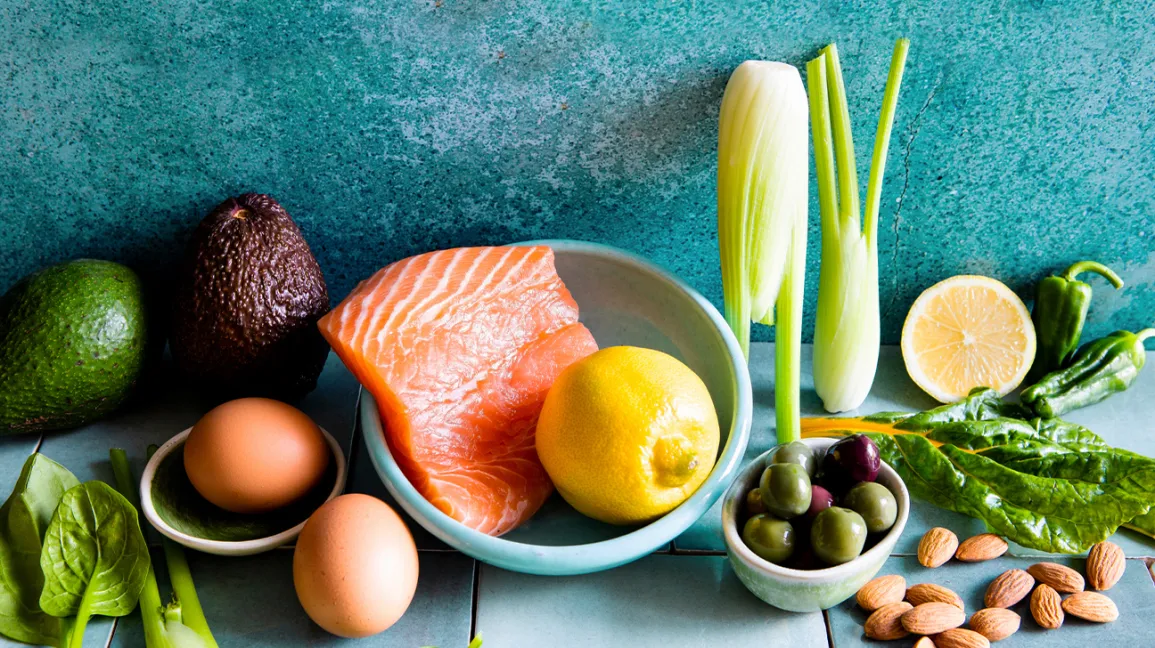
The ketogenic diet is a high-fat, low-carbohydrate diet that is designed to put the body into a state of ketosis, where it burns fat for energy instead of carbohydrates. The diet typically involves consuming 70-80% of daily calories from fat, 10-20% from protein, and 5-10% from carbohydrates. By limiting carbohydrates, the body is forced to use stored fat as a source of fuel, which can lead to weight loss and other potential health benefits.
The ketogenic diet has gained popularity in recent years, especially as a weight loss tool. However, there are potential risks and limitations associated with the diet, including nutrient deficiencies, gastrointestinal problems, and the potential for increased cholesterol levels. Additionally, the diet can be difficult to maintain long-term and may not be appropriate for everyone, especially those with certain medical conditions or who are pregnant or breastfeeding.
It’s always important to consult with a qualified healthcare professional or registered dietitian before starting any new diet or making significant changes to your eating habits. They can help you determine whether the ketogenic diet is appropriate for your individual needs and provide guidance on how to safely and effectively follow the diet if you choose to do so.
Pros of Ketogenic
- Can lead to significant weight loss: By reducing carbohydrate intake, the body is forced to burn stored fat for energy, which can result in weight loss.
- May improve blood sugar control: By limiting carbohydrate intake, the ketogenic diet may help improve blood sugar control and insulin sensitivity in people with type 2 diabetes.
- May improve certain health markers: Some studies suggest that the ketogenic diet may improve certain health markers, such as triglyceride and cholesterol levels.
- Can lead to increased satiety: The high-fat content of the ketogenic diet may help increase feelings of fullness and reduce hunger.
Cons of Ketogenic
- May lead to nutrient deficiencies: The ketogenic diet eliminates many healthy carbohydrate sources, such as fruits, whole grains, and legumes, which can lead to nutrient deficiencies if not properly planned.
- Can cause gastrointestinal problems: The high fat and low fiber content of the ketogenic diet can lead to constipation and other gastrointestinal problems.
- May lead to increased cholesterol levels: Some studies suggest that the ketogenic diet may lead to increased levels of LDL (bad) cholesterol.
- Can be difficult to maintain: The ketogenic diet can be difficult to maintain long-term, especially for those who are used to a higher-carbohydrate diet.
The Pros and Cons of Popular Diets 2: Atkins Diet
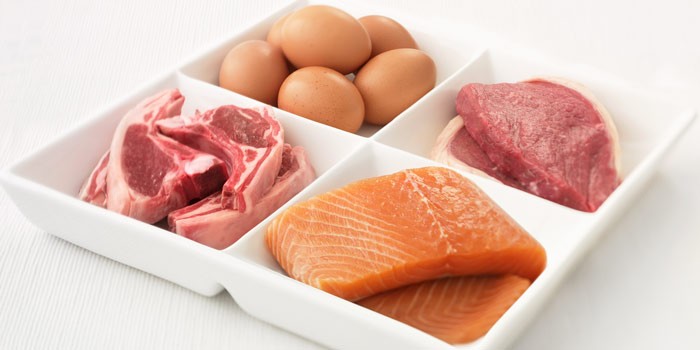
The Atkins Diet is a low-carbohydrate, high-fat diet that is designed to help people lose weight and improve their health. The diet typically involves consuming high amounts of protein and fat while limiting carbohydrate intake.
The Atkins Diet is divided into four phases, with the first phase being the most restrictive. During the first phase, carbohydrate intake is limited to 20-25 grams per day, which is intended to put the body into a state of ketosis, similar to the ketogenic diet. As the diet progresses, carbohydrate intake is gradually increased to a level that allows for weight maintenance.
Pros of Atkins Diet
- Rapid weight loss: Many people who follow the Atkins Diet experience rapid weight loss, especially during the first phase.
- Improved blood sugar control: By limiting carbohydrate intake, the Atkins Diet may help improve blood sugar control and insulin sensitivity in people with type 2 diabetes.
- Increased satiety: High protein and fat content can help increase feelings of fullness and reduce hunger.
Cons of Atkins Diet
- Nutrient deficiencies: The Atkins Diet eliminates many healthy carbohydrate sources, such as fruits, whole grains, and legumes, which can lead to nutrient deficiencies if not properly planned.
- Gastrointestinal problems: The high protein and fat content of the Atkins Diet can lead to constipation and other gastrointestinal problems.
- Increased risk of heart disease: Some studies have suggested that the Atkins Diet may increase the risk of heart disease due to the high levels of saturated fat consumed.
The Pros and Cons of Popular Diets 3: Paleo diet

The paleo diet, also known as the “caveman” diet, is a dietary approach based on the idea of eating the way our ancestors did during the Paleolithic era. The diet emphasizes whole, unprocessed foods such as meat, fish, vegetables, fruits, nuts, and seeds while excluding processed foods, grains, dairy products, and refined sugars.
Pros of Paleo Diet
- Emphasis on whole, unprocessed foods: The paleo diet encourages the consumption of whole, unprocessed foods, which can be beneficial for overall health and nutrition.
- Increased nutrient density: Many of the foods allowed on the paleo diet, such as vegetables, fruits, and nuts, are highly nutrient-dense and can provide a wide range of vitamins and minerals.
- Potential weight loss: By limiting processed foods and refined sugars, the paleo diet may help promote weight loss and improve body composition.
Cons of Paleo Diet
- Limited food choices: The paleo diet eliminates many food groups, such as grains, dairy products, and legumes, which can lead to limited food choices and potential nutrient deficiencies.
- Difficulty with adherence: The paleo diet can be challenging to follow long-term, especially for those who are used to a more varied diet.
- Increased saturated fat intake: The high consumption of meat and other animal products on the paleo diet can lead to an increase in saturated fat intake, which can be harmful to heart health if consumed in excess.
The Pros and Cons of Popular Diets 4: Mediterranean diet

Pros of Mediterranean Diet
- Emphasis on whole, unprocessed foods: The Mediterranean diet encourages the consumption of whole, unprocessed foods, which can be beneficial for overall health and nutrition.
- Increased consumption of healthy fats: The diet includes a high intake of healthy fats from sources such as olive oil, nuts, and fish, which can help improve heart health.
- Potential weight loss: By limiting processed foods and sweets, the Mediterranean diet may help promote weight loss and improve body composition.
Cons of Mediterranean Diet
- Limited food choices: The Mediterranean diet may not be suitable for those with dietary restrictions or preferences, such as vegetarians or vegans.
- High-calorie intake: While the Mediterranean diet includes healthy fats, these can be calorie-dense and may contribute to weight gain if consumed in excess.
- Need for fresh ingredients: The Mediterranean diet emphasizes fresh, seasonal ingredients, which may be difficult to find or afford in some areas.
The Pros and Cons of Popular Diets 5: Whole30 diet
The Whole30 diet is a 30-day elimination diet that emphasizes the consumption of whole, unprocessed foods and the exclusion of potentially inflammatory foods. During the 30-day period, participants are instructed to avoid all added sugars, grains, dairy products, legumes, alcohol, and processed foods.
Pros of the Whole30 diet
- Emphasis on whole, unprocessed foods: The Whole30 diet encourages the consumption of whole, unprocessed foods, which can be beneficial for overall health and nutrition.
- Potential identification of food sensitivities: By eliminating potentially inflammatory foods, participants may be able to identify food sensitivities or intolerances that they were previously unaware of.
- Increased awareness of food choices: The diet emphasizes the importance of reading labels and understanding the ingredients in the foods we eat, which can promote a greater awareness of food choices and their impact on health.
Cons of Whole30 diet
- Highly restrictive: The Whole30 diet is very restrictive and may be difficult for some people to follow for the full 30 days.
- Limited food choices: The diet eliminates many food groups, such as grains, legumes, and dairy products, which can lead to limited food choices and potential nutrient deficiencies.
- Lack of long-term sustainability: The diet is intended to be followed for only 30 days, and it may be difficult for participants to maintain restrictive eating habits beyond this period.
The Pros and Cons of Popular Diets 6: Vegetarian diet
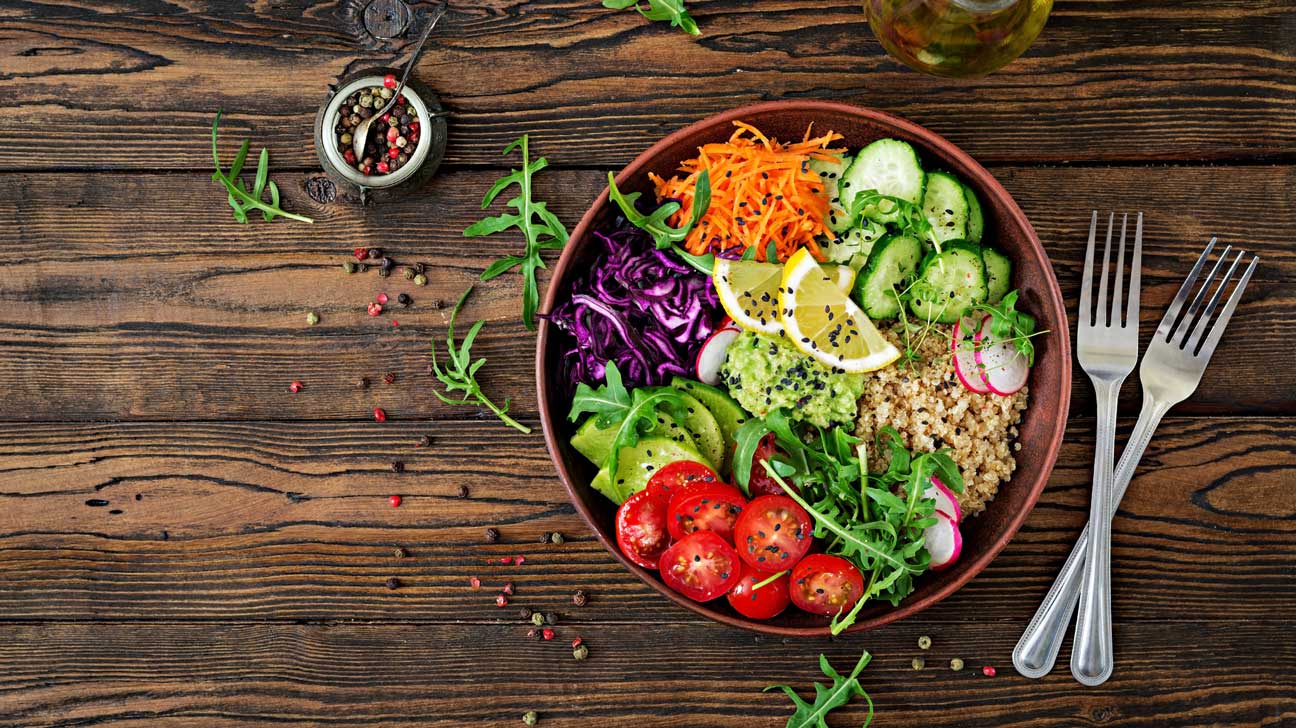
Pros of Vegetarian diet
- Increased consumption of fruits and vegetables: Vegetarian diets often emphasize the consumption of fruits and vegetables, which can provide a wide range of nutrients and health benefits.
- Lower risk of chronic diseases: Studies have shown that vegetarian diets may be associated with a lower risk of chronic diseases such as heart disease, diabetes, and certain types of cancer.
- Environmental benefits: Vegetarian diets may have a lower environmental impact than diets that include meat.
Cons of Vegetarian diet
- Potential nutrient deficiencies: Some nutrients that are commonly found in animal products, such as iron, vitamin B12, and omega-3 fatty acids, may be more difficult to obtain on a vegetarian diet.
- Limited protein options: Protein is an essential nutrient, and vegetarian diets may require more planning to ensure adequate protein intake.
- Limited food choices when eating out: Vegetarian options may be limited at restaurants and other food establishments, which can make it more challenging to follow a vegetarian diet when eating out.
The Pros and Cons of Popular Diets 7: DASH diet
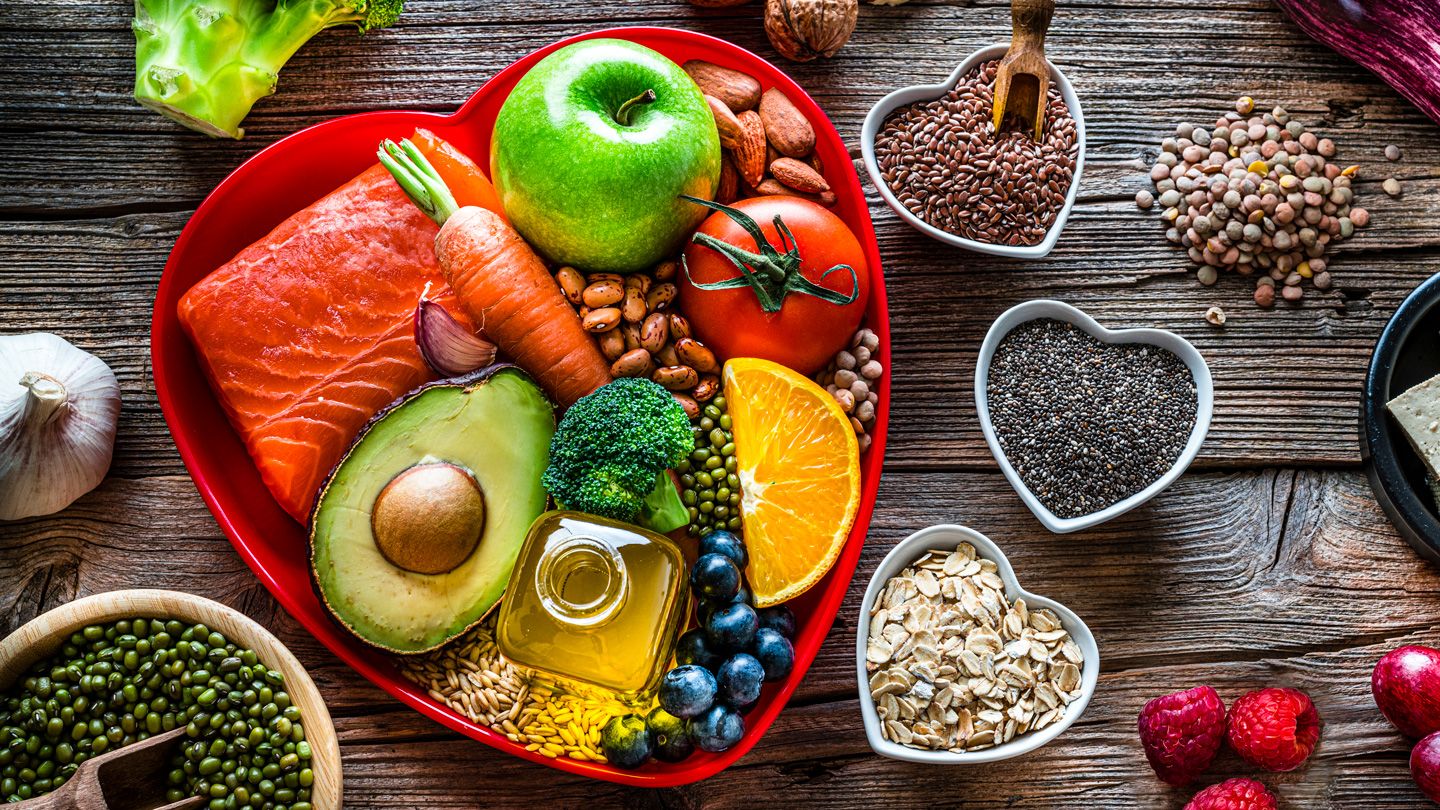
Pros of the DASH diet
- Emphasis on whole, nutrient-dense foods: The DASH diet encourages the consumption of whole, nutrient-dense foods, which can provide a wide range of nutrients and health benefits.
- Lower risk of chronic diseases: Studies have shown that the DASH diet may be associated with a lower risk of chronic diseases such as heart disease, stroke, and diabetes.
- Can be adapted to individual preferences: The diet can be adapted to fit individual preferences and dietary restrictions, such as vegetarian or gluten-free diets.
Cons the Dash diet
- Requires planning and preparation: The diet requires planning and preparation to ensure that meals are balanced and meet nutrient needs.
- May be more expensive: The emphasis on fresh fruits, vegetables, and lean proteins may make the DASH diet more expensive than other dietary approaches.
- May require a significant sodium reduction: The DASH diet emphasizes the reduction of sodium intake, which can be challenging for individuals who are used to consuming high-sodium diets.
Conclusion
In conclusion, there are many popular diets that individuals can choose from depending on their health goals, preferences, and dietary restrictions.
The Atkins diet and paleo diet focus on low-carbohydrate, high-protein, and high-fat intake while the Mediterranean and DASH diets emphasize a balanced intake of healthy fats, whole grains, and vegetables.
The vegetarian diet eliminates meat and focuses on plant-based proteins, while the Whole30 diet is a short-term elimination diet designed to identify food sensitivities.
Each of these diets has its own set of pros and cons, and it’s important to consider individual needs and goals before choosing one to follow. Consulting with a registered dietitian or qualified healthcare professional can help guide individuals in selecting a diet that is safe, effective, and sustainable for their specific needs.
Recommended:
Best Foods To Boost Testosterone (2023 Guide)
24 Best Energy-Boosting Foods (All You Need To Know)
How to Lose Face Fat (11 Natural and Stress-free Methods)
11 Ways To Gain Healthy Weight Fast Naturally (2023 Guide)
15 Tips to Prevent Blood Sugar Spikes (Complete Guide 2023)



